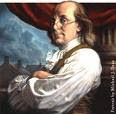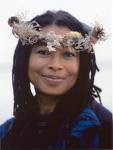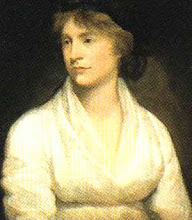
The novel, A Grain of Wheat, is thought-provoking. Simultaneously, it is a story of love, political action, race relations, and human struggle. In essence, it is complicated, intricate, and complex. I found the novel to be reflective, as well as, insightful. I love the way the novel is not told in a chronological sense. The use of flashbacks, foreshadowing, etc. really allows the reader to become submerged into the plot of the novel, but these statements are general. James Ngugi is thought provokingly genuine and informed; he delivers more than a story, more than an idea. A Grain of Wheat is a tribute to a people, a culture, and a history.
The characters presented in this novel are real. We, the reader, know them intimately. We know and experience what they experience. The characters are multi-dimensional. They have flaws and virtues alike. The characters are human beings like each and every reader. In essence, they are living characters—feeling, sensing, and knowing.
Specifically, the characters of Mugo, Gikonyo, and Mumbi were the most appealing to me. I believe that these characters offer the most to the reader. Through them, the reader senses that dynamics of the world within the pages of the novel. Mugo is a strong, older man. At the beginning of the novel, he is described as a man without a wife or family. Yet, he is compelling. He is aware of his surroundings, a hard-worker, and an unlikely hero. The reader grows to love his humility and self-doubt. These flaws are familiar to reader; they, themselves, have felt the same inadequacies and the same self consciousness.
Through Mugo, we are given the early history of Thabai, as well as the present day circumstances. For instance, his interaction with Warui informs the audience. Warui had given Mugo land after his own property “had been confiscated by the government” (5). Then “Githua, who was hobbling towards him on crutches…stood to attention, lifted his torn hat, and cried out: ‘In the name of blackman’s freedom, I salute you’” (5). From the combination of these lines, the reader instantly realizes by page five of the novel that there has been a war dealing with black men, personal property, and the government. For this reason, I believe Ngugi successfully created a people with a defined heritage and a combined socio-economic and political history.
Gikonyo and Mumbi are two separate characters, but they, I believe, must be reconciled as one. They are connected in experience, both culturally, politically, and historically. Gikonya exiled as a mere baby by his father is an honorable man. Gikonya has decidedly respected and supported, what his father rejected and aborted, his mother. He is a master carpenter, market entrepreneur, and political activist. He is multi-faceted and thoughtful.
The audience becomes most aware of the world, in A Grain of Wheat, through him. He is the cultural sounding-board for the reader. We are instantly made aware of his political prowess in the beginning pages of the novel, and this continues through the remainder of the novel. He is the organizer of the Uhuru; he asks Mugo to speak. We follow his life from his childhood, his vocations, and his relationship with his wife.
The audience experience his love for Mumbi, and we understand the decisions he has made because of her. We are able to see the human struggle mostly through the life of Gikonyo. Mumbi provides the intimate character of Gikonyo. She alone has the power to cause him pain. I believe Gikonyo and Mumbi are the heart of the story.
In essence, Ngugi’s development of characters in A Grain of Wheat was masterful. He created a convoluted story of the human experience as it relates to oppression, with an emphasis on the political history of Kenya during pre-colonization to post colonization.










No comments:
Post a Comment